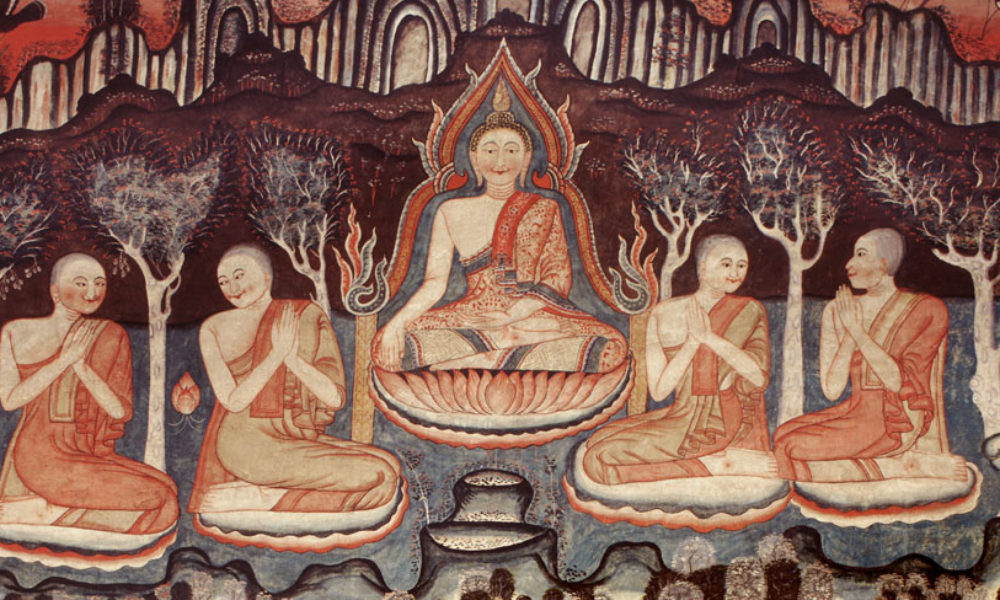In the realm of spirituality, certain traditions stand out for their profound approach to understanding the nature of reality and our place within it. Chan Buddhism, a school of Chinese Buddhism, embodies such a tradition.
Unlike merely intellectual pursuits, Chan Buddhism is an experiential path that emphasizes direct awakening to the fundamental principles of interconnectedness and impermanence. This realization fosters the natural emergence of wisdom and compassion, qualities essential for navigating the complexities of life with peace and understanding.
The Essence of Chan
At its core, Chan Buddhism is not something that can be fully captured through language or scholarly analysis. It transcends the verbal domain, insisting that the essence of Chan must be experienced firsthand. This principle underpins the Chan saying, “The practice is life. Life is the practice.” It suggests that everyday existence isn’t separate from the spiritual journey; instead, it is the very medium through which enlightenment is pursued and realized.
Four Pillars of Chan Buddhism
Chan Buddhism is structured around four foundational pillars, which guide practitioners on their path:
- Not Relying Upon Words: Chan teaches that enlightenment cannot be attained merely by reading sutras or engaging in intellectual study. This principle reminds us of the limitations of language in conveying the profound truths of existence.
- Beyond Scriptural Transmission: The teachings of Chan assert that the deepest spiritual truths cannot be fully captured or transmitted through scriptures alone. This underscores the importance of direct, personal experience in the practice.
- Inherent Buddha Nature: A central tenet of Chan is the belief that everyone already possesses Buddha nature. This realization empowers individuals with the understanding that enlightenment is not something to be sought externally but realized within.
- Seeing One’s Own Nature: The ultimate goal in Chan is to see one’s own nature and thus become a Buddha, recognizing that the Buddha is not separate from oneself.
These pillars not only outline the philosophical underpinnings of Chan but also set the stage for a transformative journey of self-discovery and interconnectedness.
Chan in Daily Life
Chan Buddhism stresses that practice should seamlessly integrate with daily living, making every moment an opportunity for spiritual growth. This involves cultivating qualities such as mindfulness, compassion, intuition, and wisdom. Practitioners are encouraged to prioritize the well-being of others, which naturally diminishes selfish tendencies and cultivates a heart of kindness.
Awareness of one’s changing mental and physical states is crucial in understanding how these fluctuations influence thoughts, words, and actions. Intention plays a significant role in Chan practice; sincere efforts to assist others, regardless of the outcome, are valued over actions that lead to tension, tiredness, or misery. Meditation serves as a supportive discipline, with Buddhadharma as the guiding light, encouraging practitioners to do their best without overexerting themselves.
Chan and Zen: A Cultural Divergence
While Chan and its Japanese counterpart, Zen, share a common lineage tracing back to Bodhidharma, the founder of this tradition, they have evolved distinct cultural expressions. Chan developed within the context of Chinese culture, significantly influenced by Taoism, while Zen took shape within Japanese culture. Despite these differences, both paths offer profound insights into the nature of mind and reality, guiding practitioners towards awakening and compassion.
In essence, Chan Buddhism offers a path that is deeply integrated with the fabric of daily life, inviting all who embark on it to awaken to the truth of their own nature and the interconnectedness of all beings. Through this journey, wisdom and compassion arise naturally, illuminating the way towards peace and understanding in a complex world.




